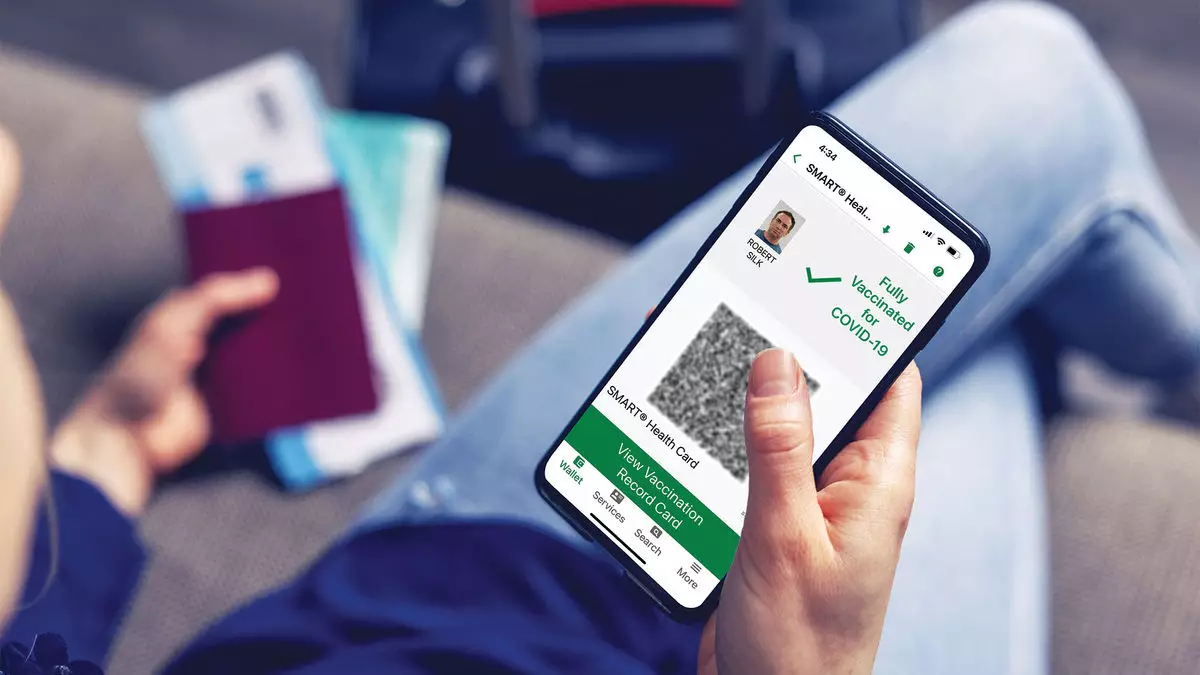The most recent mpox outbreak in Central Africa serves as a stark alarm for global health systems, emphasizing the unpredictable nature of public health emergencies. History shows us how swiftly a local outbreak can escalate into a global concern. In times of crisis, the need for effective communication and documentation, especially regarding vaccinations, becomes an urgent priority. Fortunately, the technological advancements and initiatives stimulated during the Covid-19 pandemic present a vital opportunity for improving travel safety in future public health scenarios.
Experts in the field see the groundwork laid during the pandemic as a transformative shift in how vaccination credentials are managed. Heather Roth, the immunization branch director for the Colorado Department of Public Health & Environment, remarked on the lasting impact of these innovations. The introduction of digital health credentials not only addressed the immediate challenges of the pandemic but also prepared us for forthcoming public health needs.
Significant strides have been made in the development and implementation of digital vaccination credentials, particularly Smart Health Cards. More than 25 states in the U.S. have adopted these innovative tools, which encode vaccination information in a QR format. This change represents a standardization that offers a secure, efficient way of verifying immunization status, whether at airline check-ins, border crossings, or healthcare facilities. Roth emphasizes that the infrastructures developed during crises often allow for easier replication in future scenarios.
Countries such as Canada and Japan have also embraced Smart Health Cards, demonstrating a global alignment in health documentation standards. Moreover, endorsements from international health organizations like the World Health Organization (WHO) lend credibility and encourage widespread adoption of these digital solutions.
Public health experts are unanimously in agreement that it’s not a matter of “if” but “when” another health emergency will demand a swift response. The declaration of mpox as an international public health emergency by the WHO underlines this notion. With the digital frameworks already in place, adapting these systems to accommodate new health threats will be considerably straightforward. JP Pollak, a key player in the development of Smart Health Cards, posits that enhancing these platforms to include new vaccination codes could be accomplished with relative ease.
Airlines and travel agencies had previously initiated digital health passes to encourage a return to normalcy during the pandemic. Although many of these initiatives were shelved, Pollak assures that updating such systems to integrate Smart Health Cards is a feasible task. When the next health crisis arises, travelers may simply present their QR codes on their phones, simplifying the verification processes.
Despite the overwhelming focus on Covid-19 vaccination records, advancements in obtaining digital immunization records extend beyond just one virus. As countries increasingly require proof of vaccinations—like for yellow fever in certain regions—having immediate access to digital PDF records becomes invaluable. For instance, Colorado’s online immunization portal launched in 2021 allows residents to access their vaccination history almost instantaneously, reflecting a growing trend toward digital health documentation that benefits both travelers and health authorities.
Platforms like Docket, a digital immunization records application, underscore this trend. Their services facilitate tourists in swiftly retrieving essential vaccination information, even when they’ve postponed doing so until arriving at an airport. Such innovations ultimately cater to the needs of the modern traveler, ensuring they have the necessary documentation when it matters most.
Beyond vaccination records, efforts are underway to unify individuals’ healthcare information on a global scale. The International Patient Summary (IPS) initiative is a prime example of how collaboration between countries can enhance healthcare accessibility during international travel. Participating nations are developing interoperable standards to manage health data effectively, ensuring that medical histories can be easily conveyed across borders.
D’Amore, a technical lead for the IPS, highlights how citizens can now access QR codes recording their complete health history. In cases requiring immediate medical attention abroad, patients can present these codes for verification, streamlining what has traditionally been a complicated process for travelers needing care in foreign nations.
As innovations in health documentation continue to evolve, it becomes clear that the lessons learned from the pandemic will have a lasting impact. The ability to utilize digital vaccination and health credentials could reshape how we navigate international travel and public health emergencies in future. In an era where vaccine misinformation and hesitancy can hinge on bureaucratic processes, the adoption of accessible, verifiable, and globally recognized health records may very well hold the key to safer and more efficient travel in the years to come.

